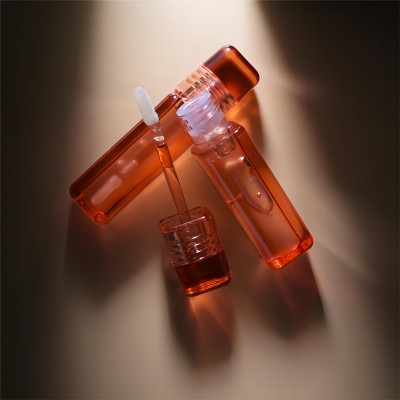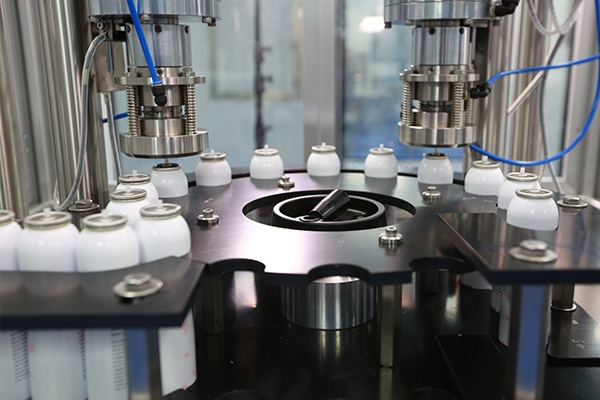OEM vs ODM Cosmetics Manufacturing
Table of Contents
- What is Cosmetics OEM?
- What is Cosmetics ODM?
- What is the difference between OEM and ODM?
- Why cooperate with OEM cosmetics manufacturers?
- Why cooperate with ODM cosmetics manufacturers?
- Final summary
1. What is Cosmetics OEM?
“OEM” stands for Original Equipment Manufacturer, which in the cosmetics industry is a company that produces cosmetics under another company’s brand. Simply put, a cosmetic OEM company manufactures beauty products for a certain brand, but the products are then sold under that brand’s name rather than the OEM manufacturer’s name.
This business model is becoming increasingly popular in the beauty industry for a number of reasons. First, it allows brands to focus on marketing, branding and distribution, while leaving the manufacturing process to professional OEM companies. This is especially beneficial for smaller or newer beauty brands that may not have the resources or expertise to handle large-scale production on their own.
In addition, cosmetic OEM can increase the flexibility and diversity of their product offerings. OEM manufacturers typically have the capability to produce a wide range of cosmetic products, from skin care products such as moisturizers and serums to color cosmetics products such as foundation and lipstick. This means brands can expand their product lines without investing in their own manufacturing facilities or equipment. In addition, OEM manufacturers have enough experience to help you produce cosmetics products that are competitive in the market.
In addition, cooperation with cosmetics OEM companies can also save costs for beauty brands. By outsourcing manufacturing processes, brands can avoid heavy investments in production infrastructure and equipment. This is particularly attractive for companies looking to minimize upfront costs and allocate resources to other aspects of the business, such as R&D or marketing activities.
From a consumer perspective, the rise of cosmetics OEM also brings many benefits. With OEM manufacturers producing cosmetics for multiple brands, consumers have more products to choose from to meet different preferences and needs. The increase in variety will lead to more intense market competition, prompting brands to innovate and improve their products in order to stand out from the competition.
Additionally, cosmetics OEM can improve the overall quality of the beauty products consumers receive. By partnering with professional manufacturers, brands can leverage the OEM company’s expertise and technology to ensure their products meet high quality and safety standards. This helps build trust and confidence in products, ultimately benefiting consumers looking for effective, reliable skin care and makeup solutions.
Despite its many advantages, cosmetics OEM also has its challenges and considerations. On the one hand, brands must carefully review and select the right OEM manufacturers to cooperate with, ensuring that the manufacturers meet their values, quality standards and production capabilities. Additionally, brands should maintain a transparent and communicative relationship with their OEM partners to maintain product integrity and consistency.
In addition, some experts believe that the rise of cosmetics OEM may lead to a lack of originality and innovation in the beauty industry, as brands may rely heavily on OEM manufacturers to develop products. This raises questions about the degree of creativity and uniqueness of the products on offer and the potential for formulaic or copycat products to flood the market.
2. What is Cosmetics ODM?
Cosmetics ODM refers to the process of outsourcing the design and manufacturing of cosmetics to third-party companies. These companies specialize in creating unique formulas, packaging and branding for beauty products, allowing brands to bring high-quality and popular products to market without having to invest in their own production facilities.
So why are more and more beauty brands turning to ODM companies for their product development needs? The answer lies in the numerous benefits this business model offers. First, partnering with an ODM company allows brands to tap into the expertise and experience of professionals well-versed in the latest beauty trends and consumer preferences. This means brands can stay ahead of the competition and launch products that resonate with their target audiences.
In addition, cosmetics ODM companies often have access to cutting-edge technology and resources that individual brands cannot achieve. This enables the creation of innovative and high-quality products that stand out in the market. In addition, ODM companies can handle the entire manufacturing process from raw material procurement to final product packaging, saving brands time and resources.
Another significant advantage of cosmetics ODM is the flexibility it offers brands. Whether a brand wants to launch a new skin care line or expand into color cosmetics, ODM companies can tailor their services to meet the specific needs and requirements of their customers. This flexibility allows brands to focus on core competencies such as marketing and distribution, while leaving product development to experts.
It’s also worth noting that partnering with an ODM company can be a cost-effective solution for brands, especially those new to the beauty industry. Rather than investing in expensive R&D and manufacturing facilities, brands can leverage the capabilities of ODM companies to turn their product ideas into reality without requiring large upfront investments.
Of course, choosing the right ODM partner is crucial to ensuring the success of your brand’s product development efforts. When selecting an ODM company, brands should consider factors such as the company’s track record, expertise in the beauty industry, and ability to deliver products that align with the brand’s vision and values.
3. What is the difference between OEM and ODM?
One of the key differences between cosmetic OEM and ODM is the degree of involvement in the product development process. Through OEM, brands providing product specifications and designs have a more practical approach and control over the entire product development process. This means they are responsible for creating initial concepts, formulations and packaging designs, and then the OEM manufacturer is tasked with turning these ideas into reality.
On the other hand, ODM manufacturers are more involved in the product development process as they are not only responsible for manufacturing the product but also designing and formulating it as per the brand requirements. This allows brands to focus more on marketing and sales, as ODM manufacturers take on the responsibility of turning the brand vision into reality.
Another key difference between cosmetic OEM and ODM is the level of customization and flexibility they offer. With OEM, brands have the freedom to create products that exactly match their specifications from formulation to packaging. This level of customization allows for the production of more unique and personalized products that are unique to the brand.
ODM manufacturers, on the other hand, typically offer a range of pre-designed products for brands to choose from and customize to a certain extent. While this may limit the level of customizability compared to OEM, it may also be a more cost-effective and efficient option for brands looking to get products to market quickly.
4. Why cooperate with OEM cosmetics manufacturers?
- Expertise and Innovation:
OEM cosmetic manufacturers are experts in their fields and have extensive knowledge in formulating skin care and beauty products. By partnering with these manufacturers, beauty brands can leverage their expertise and benefit from their innovative approach to product development. From creating new trendy formulas to incorporating the latest skin care ingredients, OEM cosmetics manufacturers can help beauty brands stay ahead of the competition.
- Customization and flexibility:
Working with OEM cosmetics manufacturers, beauty brands can customize products to meet their specific needs and target market preferences. Whether adjusting formulation, packaging or design, OEM manufacturers have the flexibility to create customized products that resonate with consumers. This customization ensures that beauty brands can bring unique and tailored products to the market, setting them apart from mass-produced products.
- Quality and Compliance:
Quality is of the utmost importance in the cosmetics industry, and working with OEM manufacturers ensures high standards of product quality and safety. Reputable OEM manufacturers adhere to strict regulations and industry standards to ensure that their products meet all necessary compliance requirements. This commitment to quality gives beauty brands peace of mind knowing their products are safe and effective for consumers.
- Cost-effectiveness:
For beauty brands, especially for startups or small businesses, partnering with an OEM cosmetics manufacturer can be a cost-effective option. OEM manufacturers often have the infrastructure and resources to produce products in large quantities, resulting in cost savings for beauty brands. This cost-effectiveness allows brands to allocate resources to other areas of their business, such as marketing and distribution, helping them scale and grow in the highly competitive beauty market.
- Time and efficiency:
Time to market is critical in the cosmetics industry and OEM manufacturers can speed up the product development process. With streamlined production capabilities and efficient supply chain management, OEM manufacturers can accelerate product time from concept to market. This efficiency is especially valuable for beauty brands looking to quickly capitalize on trends and consumer demand.
5. Why cooperate with ODM cosmetics manufacturers?
First, ODM cosmetics manufacturers are experts in their field. They have the knowledge, experience and resources to help bring your beauty products to life. Whether you want to develop a new recipe, create custom packaging, or add the finishing touches to your product, an ODM manufacturer can provide valuable insight and guidance every step of the way.
In addition, working with ODM cosmetics manufacturers can save you time and money. You can rely on the expertise of ODM manufacturers to streamline processes and deliver high-quality results without having to invest in expensive equipment, hire professionals, and deal with the complexities of product development yourself. This allows you to focus on other aspects of your business, such as branding, marketing and customer relations, while the manufacturing side is handled by experts.
Additionally, ODM cosmetics manufacturers often have access to cutting-edge technologies and innovative ingredients that are not readily available elsewhere. This means you can stay ahead of the curve and offer your customers the latest and greatest beauty products that are sure to stand out in a crowded market. Additionally, by leveraging the expertise and resources of an ODM manufacturer, you can ensure your products comply with industry standards and regulations, giving you peace of mind and keeping your customers safe.
Working with ODM cosmetics manufacturers also provides opportunities for scalability and flexibility. Whether you are a small emerging brand or an established player in the industry, ODM manufacturers can adapt to your needs and scale production accordingly. This means you can launch new products, test different formulations and respond to market trends without the constraints of in-house manufacturing. This level of flexibility can transform your business, allowing you to stay agile and competitive in a fast-paced industry.
6. Final summary
OEM and ODM cosmetics manufacturing processes offer unique opportunities for brands aiming to launch new products or expand their existing product lines. While these processes may have overlapping advantages, the decision to use one over the other should be based on the brand’s needs. For instance, a brand seeking full customization and higher control can opt for OEM, while another that prioritizes shorter lead times can opt for ODM.










